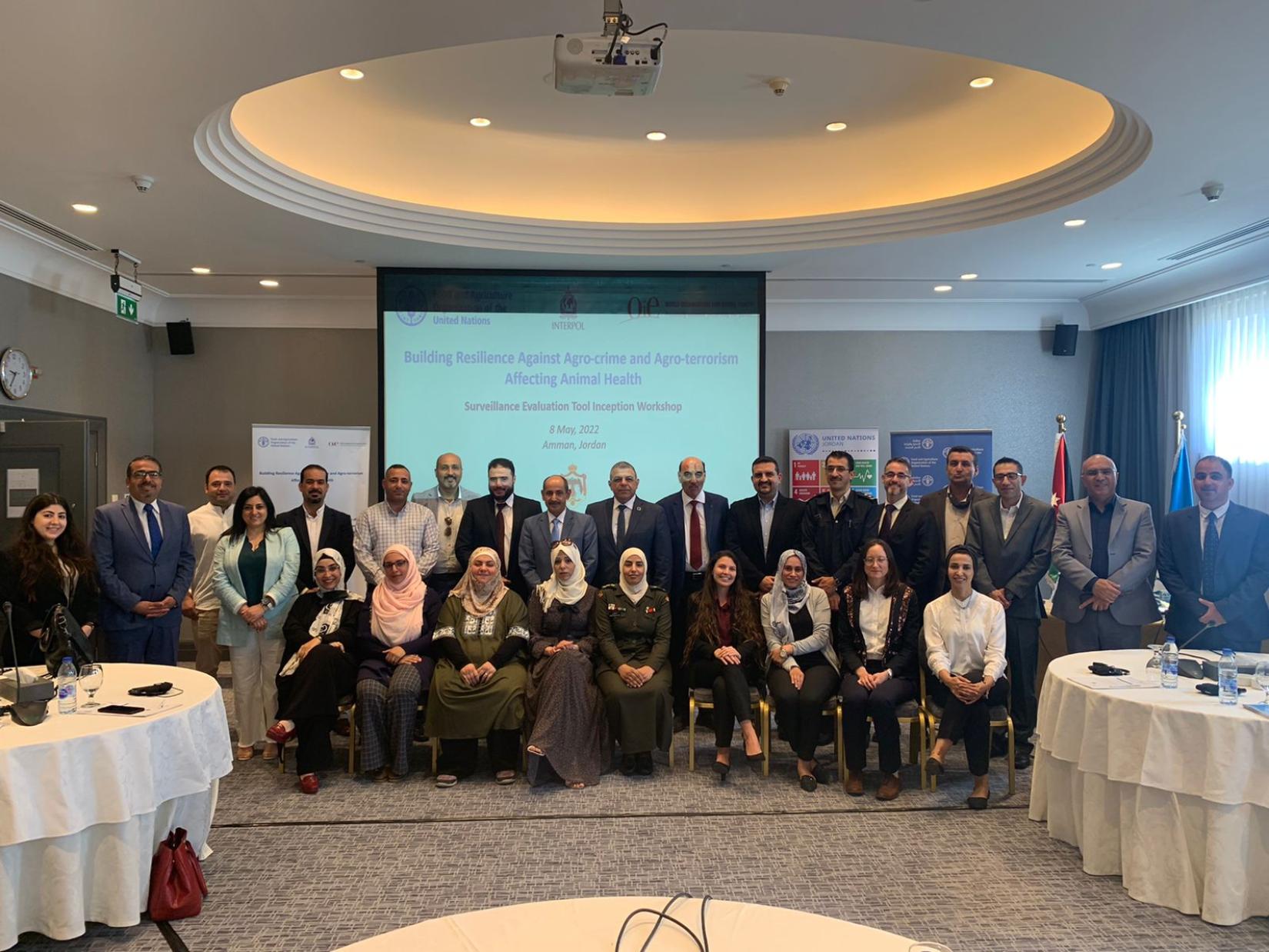FAO conducts the Surveillance Evaluation Tool workshop in Jordan
08 May 2022

The Food and Agriculture Organization of the United Nations (FAO) in cooperation with the Ministry of Agriculture (MoA) and the Jordanian Armed Forces launched today the of an assessment mission that will use FAO’s Surveillance Evaluation Tool (SET) and its Bio-Threat module to develop a tailored action plan to improve animal disease surveillance, including the detection of agro-terrorism and agro-crime affecting animal health, under the project “Building resilience against agro-terrorism and agro-crime threats to animal health.”
The project is funded by the Global Affairs Canada and implemented by a consortium gathering the World Organization for Animal Health (OIE), the Food and Agriculture Organization of the United Nations (FAO) and the International Criminal Police organization (INTERPOL) and will be implemented in cooperation with the Ministry of Agriculture and the Jordan Armed Forces.
The inception workshop was under the patronage of his Excellency Eng. Khaled Al-Hunaifat, Minister of Agriculture and was attended by partners and relevant stakeholders.
The inception workshop aimed to present to the Jordanian authorities the assessment mission itself as well as the other phases of the project that will help develop a response to risks related to animal health and the use of animal pathogens as a threat. Following this workshop, a mission for 12 days, will take place in Jordan with the objective of identifying gaps and needs for the epidemiologic surveillance system of animal diseases and the specific surveillance of agro-terrorism and agro-crime threats.
Following the assessment phase, training and exercise materials will be tailored to local needs and available resources. The training will focus on strengthening collaboration between veterinary services and law enforcement authorities to improve their ability to detect and sustainably respond to animal health emergencies related to agro-crime and agro-terrorism.
The project also introduces new tools for the Good Emergency Management Practices (GEMP) such as facilitation kit and a specific module on the intentional use of pathogens related to agro-crime or bio-terrorism affecting animal health.
The FAO Representative in Jordan Eng. Nabil Assaf, said, “This project will use the Surveillance Evaluation Tool (SET), which is a normative FAO tool that has helped more than 20 countries in Africa and Asia to assess and develop action plans to improve their animal disease surveillance systems and detection of unusual animal health events that may be related to agro-terrorism or agro-crime in collaboration between law enforcement agencies and veterinary services.”
On behalf of HE Eng. Khaled Hnaifat, Minister of Agriculture, the Assistant Secretary-General for Livestock, Eng. Ali Abu Nukta, said that “It is necessary to raise the level of veterinary services within the governmental and private sectors, starting with the livestock sector in the Ministry of Agriculture, to be a single unit ready to deal with any accidental event that negatively affects humans, animals and the environment, and as a result on the national economy and national security.”
Middle East is one of the three-targeted regions together with North Africa and Southeast Asia, and Jordan has been selected as a pilot country. It is expected that many countries will benefit from the outcomes of this innovative project.


